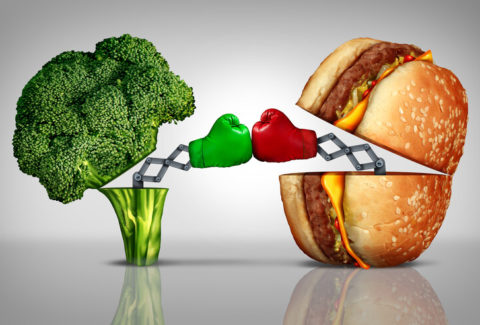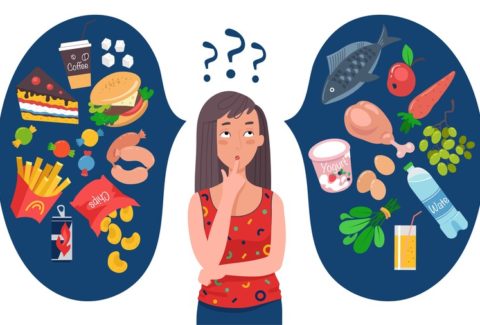Why Are Our Words The Only Thing That Truly Matters?
- Our words are our thoughts expressed aloud
- Thoughts are the Operant Factor
- Thoughts, while being the Operant Factor, really do not mean anything
- All thoughts are always neutral and do not mean anything until focused upon
- Talking, speaking, or articulating words, is focusing on a specific thought
- Talking, speaking, or articulating words, is focusing on a specific thought, which activates this thought, which then starts a series of mechanisms that will eventually lead to an action potential in the brain
- The more we articulate these same words that represent the thoughts, the more focused and activated the thought, and the faster the threshold is reached to achieve this action potential, taken up by the process of epigenetics
- The process of epigenetics is what explains the process of neuroplasticity, new gene expression, and historical and transgenerational trauma
- The process of epigenetics is what explains why and how we are always in the process of programming, reprogramming, learning, unlearning, and relearning [1].
- This whole mechanism is why our words are the only thing that truly matters, while everything else is simply noise.
What does that all mean? Many things:
- Pay attention to your words
- Understand that paying attention to your words is the same as paying attention to your thoughts
- Understand that paying attention to your words may be an easier, more active, and more concrete way to pay attention to your thoughts.
- Become conscious of your words. Ask yourself, “Is this word a reflection of what I truly want, wish, or choose?”
- Replace whatever word you find is not a reflection of what you truly want with adequate words. As you do so, you are actually reshaping your thoughts without even realizing it
- Once you are totally conscious of the words you are using and once you get to use your words adequately and to your satisfaction, then do your best to respect them
- Respecting your words means staying faithful to them, being in congruence with them, and staying true to them
- Respecting your words means understanding that you are your words, and that staying true to your words is staying true to yourself [2]
- Respecting your words means understanding that no one will ever be any better at staying true to your own words than you, yourself
- And Respecting your words means the more respect you have for words the more respect you have for yourself, and vice versa.
Here’s what’s more:
- Our brain follows patterns [3]
- When we give our word and fail to respect it, fail to stay true to it, or fail to remain faithful to it, our brain reinforces this same pattern or this same habit for us
- Because habits breed results and results breed identity, as we fail to stay true to our word, we then start to identify ourselves as someone who “cannot keep our word.” This alone is one of the most life interfering identities we can choose for ourselves, as the ramifications are just too many and too devastating
- Having an identity of “he who does not keep his word,” simply lowers our self-image, our self-esteem, our self-confidence, and our self-efficacy
- The ripple effect of such an identity simply reinforces our belief that we neither keep our word, nor can we do so. This further diminishes our self-image, self-confidence, or self-esteem, which, in turn, further diminishes us as a person
- Being diminished as a person, leaves us disempowered, victimized, which then makes it even harder for us to ever stay true to our words
- Yet, as long as we do not stay true to ourselves we will be unable to get out of the sense of disempowerment, victimhood, or suffering. Hence the need for us to stay true to our words, and hence the reason why our words are the only thing that truly matters.
What to do:
- Look back to the first six points under the subtitle: “What does that all mean?”
- Choose one area of your life where you feel disempowered, victimized, as a “failure,” or experiencing a sense of suffering
- State what you want instead in this area, what you’re willing to do to make it happen, start taking action accordingly, and resolve to stay true to your word, no matter what until you see the change that you really want in that specific area of your life.
One caveat: in Science, two molecules of Hydrogen plus one molecule of Oxygen always give us water. It matters not where, when, or how. As long as we combine the exact two molecules with the exact one molecule, we will always get water, regardless of the circumstances. This means, the above has nothing to do with where you are right now, which area of their life your patients may feel “stuck,” in, or what the cause of their suffering may have been. On the other hand, while 2 molecules of Hydrogen and one molecule of Oxygen will always give us water, three molecules of Hydrogen plus one molecule of Oxygen can and will never give us water. It will give us Hydronium, yes, but it cannot give us water, guaranteed. It does not matter whether it is still the same elements, Hydrogen and Oxygen. It does not matter that it is still the same molecule of Oxygen, and it is only one extra molecule of Hydrogen. No, your patients are simply wasting their time, unless they really follow the Science as it is meant to and as it has been designed and replicated.
What does all this mean?
Please have and help your patients follow the above as outlined, if they are to find themselves to be as efficacious and as efficient as it is designed to be.
Please do let us know how things unfold, and in the meantime, we congratulate you on learning the best tools to be the best clinicians you can be to then help your patients the best.
Until soon,
Karen and Mardoche
[1] Weinhold, B. (2006). Epigenetics: The science of change. Environmental Health Perspectives, 114(3). Retrieved from https://www.ncbi.nlm.nih.gov/pmc/articles/PMC1392256
[2] Gruen, Michael. “Why Keeping Your Word Is the Best Way to Show Respect.” Rolling Stone, Rolling Stone, 28 Feb. 2021, www.rollingstone.com/culture-council/articles/keeping-word-show-respect-1131595/.
[3] Ohio State University. “This is your brain detecting patterns: It is different from other kinds of learning, study shows.” ScienceDaily. ScienceDaily, 31 May 2018.









